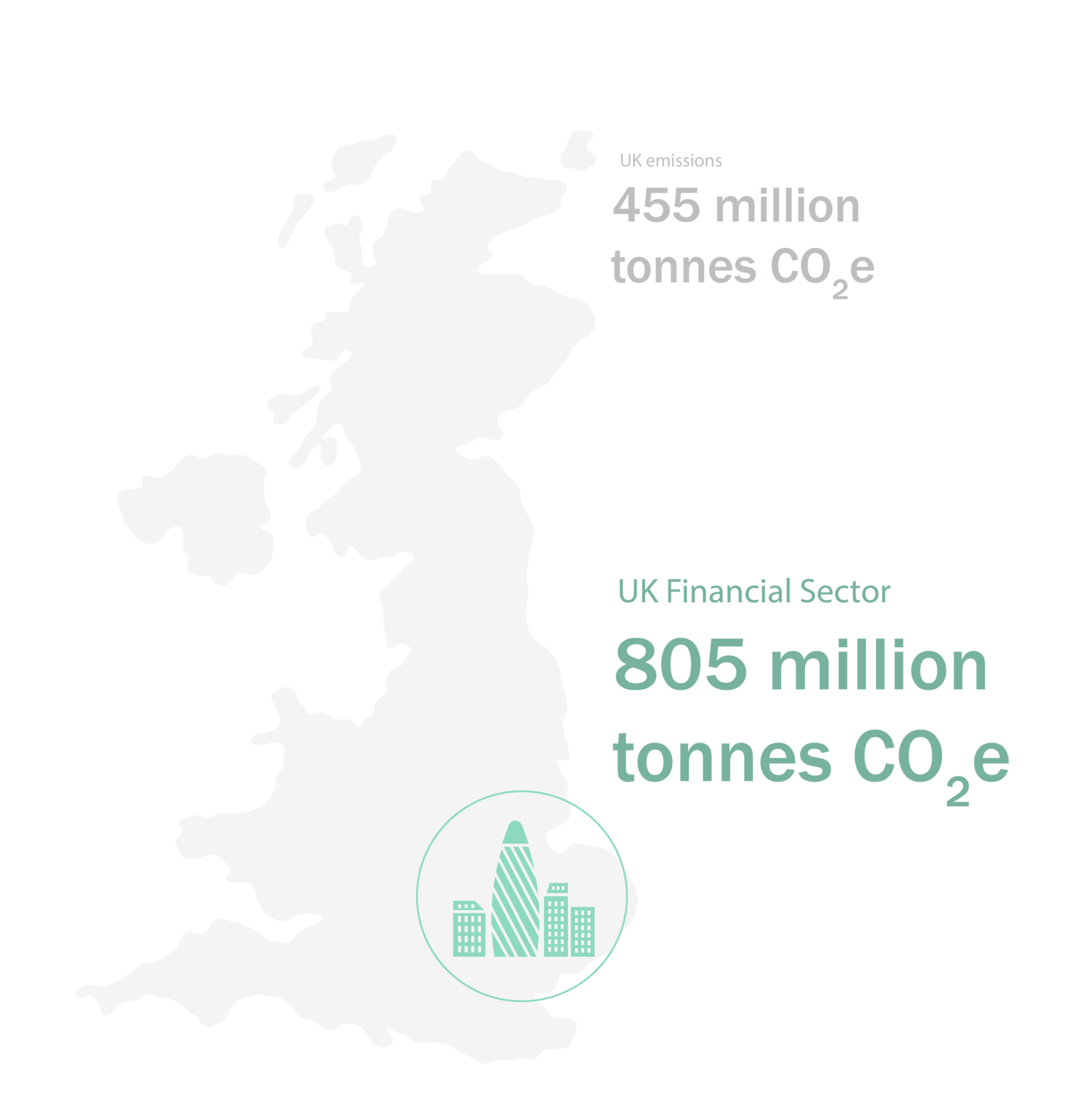The Big Smoke
The Global Emissions of the UK Financial Sector
The Big Smoke
The finance sector will play a vital role in determining whether the world will successfully transition towards a low-carbon, sustainable economy. As an important stakeholder to the world’s economic actors, the sector can exert enormous influence by aligning investment and lending activities with the goals of the Paris Agreement.
While the UK financial sector’s national importance and its international reach is championed by the government and regulators, its ongoing role in financing the climate and nature emergency is not a matter of corresponding regulatory focus.
The Big Smoke assesses the size of the global carbon footprint financed by 15 banks and 10 asset managers in the UK’s financial sector. It demonstrates that the UK’s financed emissions are extensive, likely representing one of the UK’s most significant contributions to climate change. Yet, the figures are most likely a significant underestimate.
The government and regulators must not assume that a combination of voluntary net zero pledges and increasing disclosure of climate risk will drive capital allocation at the scale and pace required to meet the climate emergency, without further regulatory intervention.
COP26 provides a unique opportunity for the UK to accelerate the adoption of financial practices that actively support the shift towards net zero and begin to tackle globally financed emissions in line with the Paris Agreement.

If the UK’s finance sector were a country, it would be the ninth biggest emitter in the world and 1.8 times greater than the UK. Although not a like-for-like comparison, this demonstrates the scale of the sector’s exposure to high-carbon industries and its contribution to global heating


Key findings
1. The UK’s financial sector is a high-carbon sector
Estimated carbon emissions associated with financial institutions analysed amounted to 805 million tonnes CO2e. This is greater than the domestic emissions of most countries and almost 1.8 times the entire UK’s net emissions account.
2. This is likely an underestimate of financed emissions
Existing carbon accounting methodologies contain gaps for financial institutions, so some emissions (such as those associated with service providers) are not captured. In addition, they do not cover Scope 3 emissions linked to any loan or investment. Until such gaps are closed, the true extent of exposure and contribution to climate risk will be misjudged and underestimated.
3. There is a lack of transparency and comparable data
Industry classification and aggregation varied between financial institutions, creating barriers for the analysis. In addition, a lack of granularity in the data made precise comparable emissions estimates highly challenging. This is a significant risk as these disclosures are currently being relied upon for capital reallocation in line with the Paris goals.
Key recommendations
Ahead of COP26, which will be hosted by the UK, the government should commit to the following measures:
- Legislation to require all UK-regulated financial institutions to adopt and implement a transition plan that aligns with the 1.5ºC goal of the Paris Agreement, the provisions of which should be guided by regulation that is both flexible to evolving best practices for assessing alignment and in line with the latest science.
- The development of specific requirements to be included within those transition plans, supervised by the relevant regulatory and supervisory bodies.
- Transition plans would apply to all financial activities (lending, underwriting, investing, advisory services, and insurance underwriting).
- Transition plans would include interim emissions reduction targets in line with 1.5ºC pathways with low or no temperature overshoot, are not reliant on carbon dioxide removal and are reported on an annual basis.
- The UK government should use its G7 and COP26 presidencies to encourage other countries to adopt this approach, by spearheading leadership towards aligning the private finance sector with the Paris goals and creating international venues and mechanisms to take this commitment forward.
- The UK government should support the harmonisation and consistent implementation of an industrial classification across all reporting under Pillar 3 of the Basel Framework to increase transparency, comparability and granularity of disclosed data.
- The Treasury should report to parliament each year on whether financed carbon emissions for the UK-regulated financial institutions has increased or decreased and whether this poses any systemic financial risks for the UK financial system.
- In line with its updated mandate on climate change, the Bank of England should:
- Ensure that climate-related risks and impacts are integrated into asset purchase schemes and the collateral framework.
- Adjust the macroprudential regulatory framework so that climate-related risks and impacts are more accurately reflected in capital liquidity rules.
Get in touch
The Big Smoke report has been co-produced by Greenpeace, WWF. For more information and requests please use the following email.
info@bankonourfuture.net
Run by The Sunrise Project, privacy policy here.


